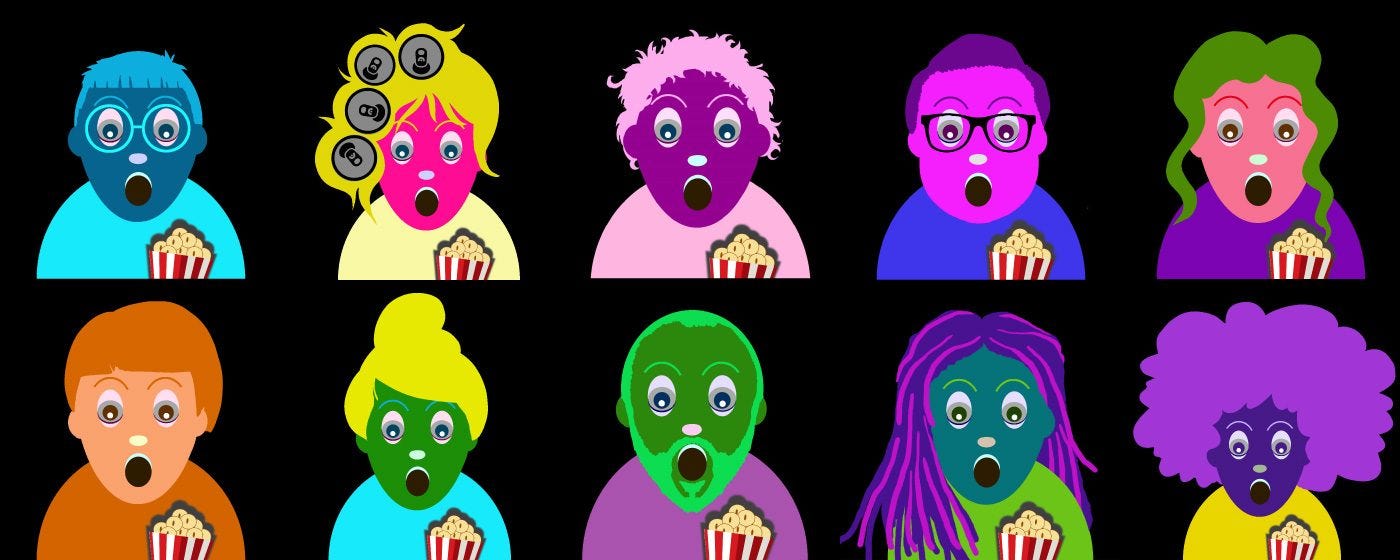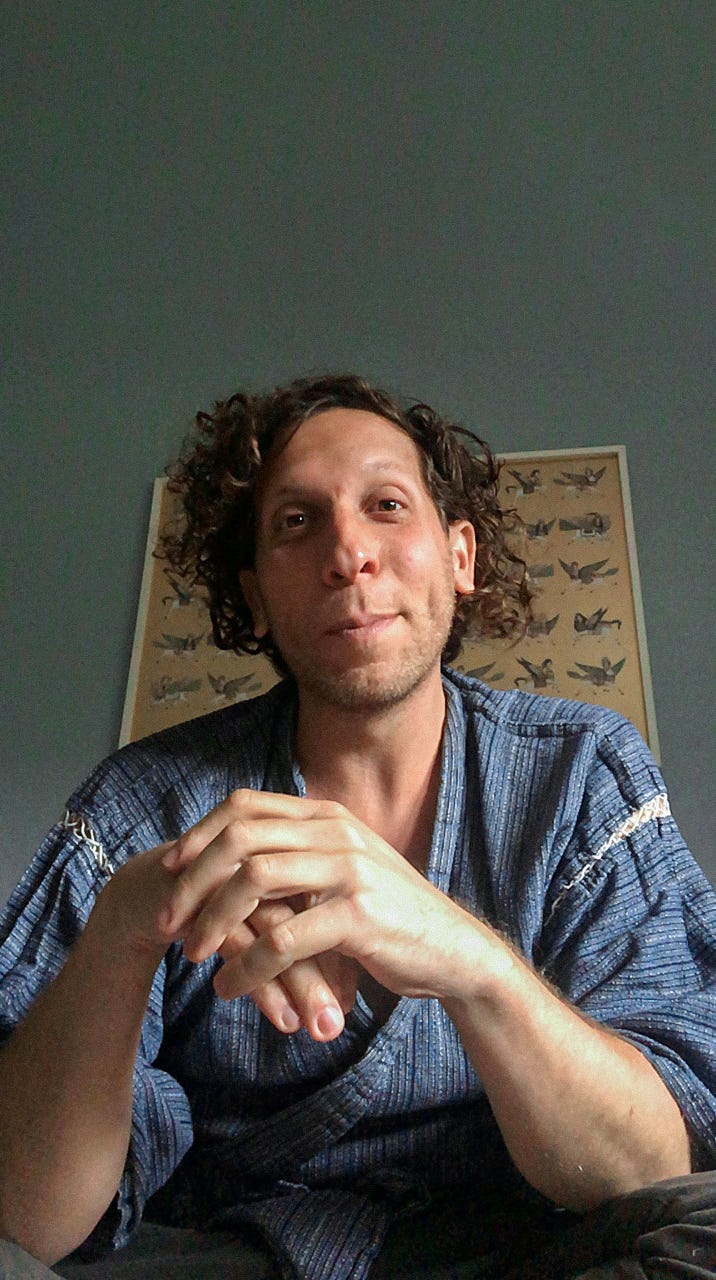
When I reflect on the “flavor” of quarantine life, I expect I will always remember my daily coffee break ritual: watching Korean game shows and soaps with my sister and my friend Michael. While these shows are, frankly, absurd, loaded with melodrama and obvious product placement, they are at the exact level of complexity that my mind can handle right now. Life is stressful for everyone. I, like many people right now, have a career being reconfigured in light of new restrictions, a love life put on hold as I isolate, and a mountain of revived drama as living situations change. Hunky Lee Min Ho fighting his evil uncle and also shilling fried chicken and LED face masks is exactly the kind of treat I need to get me out of my own head.
BINGE starts from that viewpoint: the idea that even the worst TV junk food fills some sort of need in our lives, and BINGE builds that into an affecting, dare I say therapeutic, experience. It’s a mix of a self-guided interview to be completed before the performance, a one-on-one conversation with an artist/TV superfan, and finally, a marathon they prescribe for you of curated episodes of their favorite show.
The self guided interview (the “MaGDA,” named for the Sex and the City character), first struck me as a mix of wildly invasive and deeply silly. The questions range from the absurd (Q: “What nickname would Flava Flav give you?” A: “Curlz”) to deeply personal, exploring themes around sex, love, trauma, privilege, and ambition, while also aligning to the setups of possible TV show matches. After a night of flipping back and forth on my phone, worrying about how much I really wanted to let a total stranger know, I decided that I would get the best BINGE experience by being 100% honest. This is the strategy I would now recommend; the test is thoughtful and left me far more sure of where I stand during a time of constant change. I laughed out loud at certain questions (such as the “yes” or “no” binary answers to the question of “Are we sluts?”, and a series of checkboxes on what I would give up my dignity for, such as “a shot at nightclub hosting gigs”). As I took the quiz, I began seeing myself reflected in these shows. Even ones I thought were totally unrelatable, like the Real Housewives franchise, had a universal truth or two when viewed in the right light; who among us hasn’t felt a surge of pride over a physical trait that gives them power, only to fear and mourn its potential loss? I’ve always been a sucker for personality quizzes and this was a great one which left me feeling delightfully vulnerable. Even without having received my results, the time spent taking it felt worthwhile.

The trust required by such personal questions was deeply respected by the rest of the experience. From a cast of ten, I was matched with Brian Lobel, creator of BINGE, and also a Sex and the City maniac. Our conversation was sweet and tender and my clear embarrassment over my human foibles was both reassured and examined. A mix of more questions, some roleplay exercises, and a few prepared monologues, the conversation felt natural and lacked some of the awkwardness that plague some Zoom pieces.
Get Blake Weil’s stories in your inbox
Join Medium for free to get updates from this writer.
SubscribeSubscribe
To be honest, I had never watched Sex and the City before BINGE asked me to. This is ironic, I would soon learn, as some of my writing can read like a Carrie Bradshaw parody. I was worried that my unfamiliarity would detract from the BINGE experience, but if anything, it allowed me a sense of discovery. I went into the viewing without preconceived notions of how my life might relate and was surprised by the parallels that could be drawn.
One of the most gratifying human experiences is that of feeling truly seen. The attention is not only flattering, it’s a reassurance that you are not alone, that your problems are shared by others. After a five episode Sex in the City marathon, I was shocked to find that, contrary to my snobbery, the show is great in a delightfully 2000’s way and contains a shocking number of parallels to my life. Watching the (admittedly thin) characters of Carrie and Miranda and Charlotte and Samantha in moments hand-picked to resonate with me by Brian, these scenarios gave me that feeling of being seen. If I’d dived into the show alone, I would have enjoyed myself, sure, but being gently guided through something Lobel so clearly loved was a real treat. He knew exactly which episodes would be the panacea to the feelings of guilt, confusion, and isolation I struggled with in my survey and conversation.
Am I going to watch more Sex in the CIty? Probably not. I loved what I saw, but it’s not my show. I am going to keep looking for the signposts in my other favorite shows, though. Season by season, like the proverbial sands in the hourglass/days of our lives, these shows mark the ages we live through. Our DVDs and streaming libraries let us call upon the strength we built in those eras, in the times we need it. With just a 30-minute survey, a kind-hearted conversation, and a boatload of empathy, Lobel and his cast manage to use television shows to give strength to the audience, in a time when all of us probably need a little something extra to get us through the week, whether it’s Emperor Lee Gon riding on a white horse or Carrie Bradshaw tapping away at her laptop.
BINGE continues through July 12. Tickets are $25.
NoPro is a labor of love made possible by our generous Patreon backers. Join them today!
In addition to the No Proscenium web site, our podcast, and our newsletters, you can find NoPro on Twitter, Facebook, YouTube, Instagram, in the Facebook community Everything Immersive, and on our Slack forum.
Office facilities provided by Thymele Arts, in Los Angeles, CA.



















Discussion